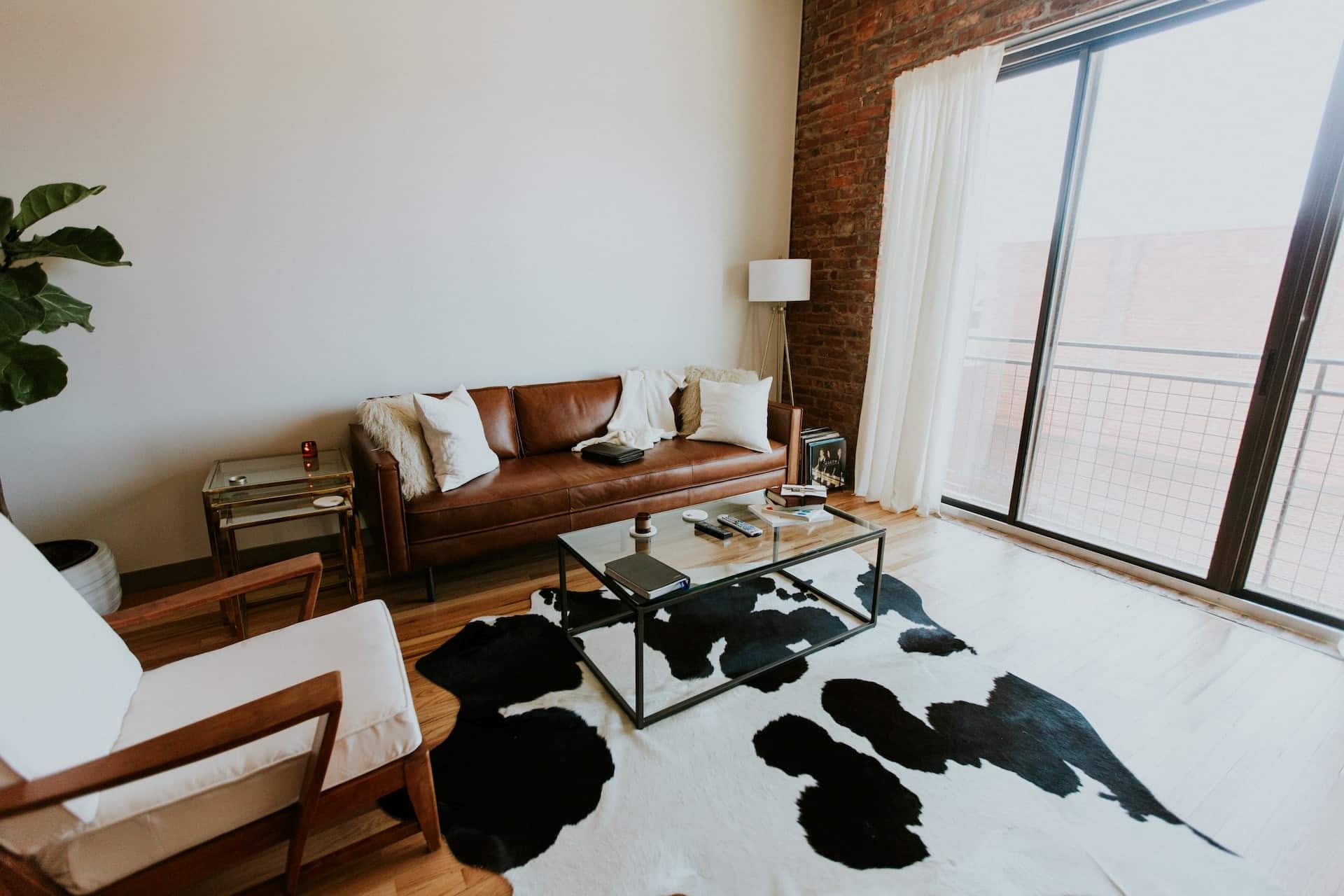IKEA was founded in Sweden in 1943 by Ingvar Kamprad and is one of the largest furniture brands in the world. The furniture manufacturer and retailer operates 445 stores in more than 50 markets. As of 2020, nearly 70% of IKEA stores are in Europe and employ 211,000 people globally.
IKEA offers over 12,000 furniture products through its stores and online. Its products are designed to be assembled by the buyer, which can discourage some buyers.
The company’s top-performing markets include Germany that brings in 15% of sales and the US at 14%. IKEA plans to open 50 stores worldwide in 2021 even though in-store sales have dropped as more consumers migrate to online platforms.
In 2020, IKEA’s online sales surged 45% over the 12 months to August as millions of people turned their homes into makeshift schools and offices. Over 4 billion consumers visited IKEA’s website during the period. The surge in online sales was wiped out by low in-store sales leading to a 4% drop in revenue for FY2020 to $46.7 billion. Its FY2020 revenue is about $1.5 billion lower than in 2019.
The biggest challenge for IKEA in 2021 and beyond is the mass migration of consumers to online platforms like Wayfair and Amazon. Other traditional competitors like Walmart and Target also have robust eCommerce platforms that can poach IKEA’s customers. Unique brands like Jysk, Kartell, and Williams-Sonoma are also IKEA’s top competitors in 2021.
Here is the full list and in-depth analysis of top IKEA’s competitors and alternatives:
1. Wayfair
Boston-based Wayfair is the biggest online shopping platform for home furnishings, décor, and appliances. It offers more than ten million items from over 10,000 suppliers and has grown year-over-year in the last eight quarters. Wayfair has 4.4% of the US furniture and home décor market. Its top products include living room furniture at 23%, bedroom furniture at 17%, and kitchen furniture at 7%. Wayfair’s product mix makes it the top competitor for IKEA.
In 2020, customers mass migrated from buying in-store to online purchases and increased Wayfair’s competitive edge significantly. In terms of dollar share for online buyers only, Wayfair had 17% of the share in 2020 and is now in the second position behind Amazon. Wayfair is a worthy IKEA competitor.
2. Amazon
Although Jeff Besos first established Amazon to give consumers access to books, the eCommerce giant has diversified its offerings to include home furnishings. Amazon’s competitive advantage includes an extensive distribution network, a variety of items, and customer services like no-cost EMI and free delivery.
The platform has several filtering options to help consumers find exactly what they are looking for, whether it is a comforter or housewarming gifts. IKEA was selling its Smart Lighting products on Amazon but pulled out from the platform in 2019. In February 2019, IKEA indicated that it may create its marketplace and compete against Amazon.
3. Ashley HomeStore
Founded 23 years ago in 1997, Florida-based Ashley HomeStore is an American furniture store chain and manufacturer of furniture products. In FY2020, Ashley HomeStore was the #1 home furniture retailer in the US with $4.96 billion in revenues and is also the top-ranked conventional furniture store in North America. Its US revenues increased by nearly $500,000 from $4.5 billion in FY2019.
The furniture retailer has over 4,000 permanent employees and 23,000 part-time workers and operates in over 1,000 locations worldwide. It is owned by Ashley Furniture Industries Inc., which is renowned for manufacturing high-quality home furniture. Whichever way you look at it, Ashley HomeStore is a top IKEA competitor in 2021 and beyond.
4. Walmart
Walmart offers a large selection of home furnishings, including office desks, living room pieces, home décor, beds, mattresses, kid’s furniture, throw pillows, and many more. Its inventory is not only top quality but also budget-friendly. Walmart stocks products from other brands and also offers its modern furniture collection.
The collection includes top-selling pieces of home decor for under $50, which way cheaper than IKEA’s products. The retail giant recently unveiled Walmart+ to boost its eCommerce. Walmart’s extensive market presence and budget-friendly offerings make it a worthy IKEA competitor.

5. Home Depot
Home Depot is the largest American retailer of materials and tools for home improvement. The retailer also offers furniture, bedding, lighting, throw pillows, and home accents. But Home Depot has a major weakness over IKEA when it comes to prices. According to price research by home experts, IKEA’s cabinets cost between $75 and $1,600.
Home Depot’s pre-assembled cabinets cost between $100 and over $3,000. Customers can buy IKEA cabinets in bulk and pay in the $200 to $300 range. Although the prices give IKEA an upper hand, Home Depot offers cabinet makeover services that can reduce the cost in the long run.
6. Restoration Hardware
Founded in 1979, Restoration Hardware is an upscale American home-furnishings company. The company sells furniture online and operates 36 outlet stores in the US and Canada. Its high-end luxury furniture is expensive, which increased its susceptibility in 2020. In Q1 2020, its revenue dropped to $483 million from nearly $600 million in Q1 2019.
The company plans to open new design galleries in every major market in the next few years. The new galleries will increase its revenues to $6 billion in North America and over $20 billion globally. The upscale brand plans to debut its first showroom in Europe in 2021 and increase its advantage over IKEA.
7. Kartell
Founded in 1949, Milan-based Kartell is a sub-brand of Felofin and one of the largest Italian retail brands. Kartell has expanded globally and makes around $100 million in revenues on average per year. In 2020, Kartell was ranked 4th on BizVibe’s Best Furniture Brands.
Its main advantage is creativity in furniture design and recently unveiled its first chair created by artificial intelligence (AI) technology. The chair’s material is 100% recycled, pure, and uncontaminated. Kartell is already looking in the future and laying the ground to take the market by storm.
8. Williams-Sonoma Inc.
Founded in 1956 by Charles E, Williams-Sonoma caters to thousands of customers in over 60 nations and operates 650 stores in the US. It is ranked 5th on BizVibe’s top 10 list. The main competitive advantage for Williams-Sonoma is its portfolio, which includes William-Sonoma Home, Pottery Barn, West Elm, Rejuvenation, and others.
Williams-Sonoma Home offers upscale products, while West Elm caters to middle-class families. In 2020, West Elm launched a new storefront on Facebook Marketplace for buying and reselling old furniture. All these factors make Williams-Sonoma one of the top IKEA competitors.
9. Jysk
Founded in 1979 by Lars Larsen in Aarhus, Jysk is regarded as the IKEA from Denmark. It offers a wide selection of home furniture made using better fabrics swatch than IKEA. The advantage of buying Jysk’s sofas and beddings is its advanced and super-soft materials that feel like clouds.
Its pillows are popular and cost around $50 each. Jysk’s delivery support, monthly subscriptions, and shipping are all better than IKEA, which is a big competitive advantage. In October 2020, Jysk opened its seventh store in Ireland’s city of Dublin at Gulliver’s Retail Park as part of its global expansion efforts.
10. Anthropologie
Anthropologie offers a wide collection of more than 1,700 home items with personality-packed designs. The iconic furniture manufacturer refreshes its inventory seasonally. Anthropologie’s Spring 2020 collection ranged from colorful velvet chairs to wooden coffee tables and floral vases.
Most of its products are designed for women, but men can also shop for home furniture from its sister companies CB2 and Urban Outfitters. Offering unique items for both men and women gives Anthropologie an upper hand over IKEA.
11. World Market
As the name suggests, the World Market sells furniture and home decor from all over the world. Customers can get anything via World Market’s online platform from modern pieces to handmade rattan furniture, Indian rugs, traditional baskets from Indonesia, and more.
The company offers all these products at an affordable price and ships orders of more than $199 for free. World Market stands out among all IKEA competitors and can poach customers who prefer exotic items from across the world.
12. Apt2B
Founded in 2010, Apt2B first focused on living rooms and sofas but has expanded its offerings in the past 10 years to include furniture for bedroom, dining room, office space, storage, and décor. It is described as a cross between Ikea and Crate & Barrel because it is fashionable and economical. Apt2B is an online-only business and only builds made-to-order furniture.
Apt2B’s robust online platform allows customers to customize the product of their dream using a 3D configurator. They can choose from more than 50 fabrics. The company also offers free shipping and up to 100 days to return their purchase. Apt2B is a worthy IKEA competitor.
13. Zinus
Zinus offers sofas, love seats, bed frames, mattresses, and other items online. Most of its products are smaller than average and designed specifically for tiny New York apartments or starter homes. They are also cheaper and can take less than 20 minutes to assemble without any tools.
It offers free delivery for all purchases. Zinus’ Moiz Wood Platform Bed Frame was ranked 4th in the New York Times’ Best Platform Bed Frames under $300 for 2020.
14. Target
Founded in 1902, Target is a major player in the global retail sector. The company operates over 2000 stores in the US alone and many more across the world. Its in-house decor brands range from Project62 to Hearth & Hand, Opalhouse, and many more.
In Q2 2020, Target’s home furnishings sales surged 30% from the first quarter. The company ships all orders over $35 for free. Target’s extensive selection and global reach make it a worthy IKEA competitor.
15. Private Label and Unorganized Companies
From Asia to Africa, America, and Europe, most consumers purchase their furniture from small local carpenters. It is estimated that private labels and unorganized companies control over 50% of the international furniture market.
For example, India’s Pepperfry introduced only nine private brands in its furniture category in 2020 and these labels now bring in about 55% of the company’s furniture business. Private labels and unorganized companies operate in every neighborhood and threaten IKEA’s market share more than all other competitors.
References & more information
- BBC Retail (2020, Oct 6). Ikea plans 50 store openings even as shoppers move online. BBC
- Ziady, H. (2020, Oct 6). Ikea’s online sales surged as people turned homes into offices and schools. CNN Business
- Hughes, S. (2020, Apr 27). IKEA, Wayfair, and their impact on the home decor market. TraQLine
- Jansen, C. (2020, Jan 6). Ikea ends US sales on Amazon. Retail Dive
- Statista Research Department (2020, Nov 26). Sales of the leading 10 conventional furniture stores in the U.S. from 2018 to 2019. Statista
- Rabideau, C. (2020, Sep 21). 25 top-selling pieces of home decor you can get at Walmart under $50. USA Today
- Battaglia, E. (2020, Dec 29). IKEA vs. Home Depot: Which should you choose for a NYC kitchen renovation? Brick Underground













hi a very nice article, may i know the publishing date?
Hi Basyirah,
the article was published on Jan 19, 2021.